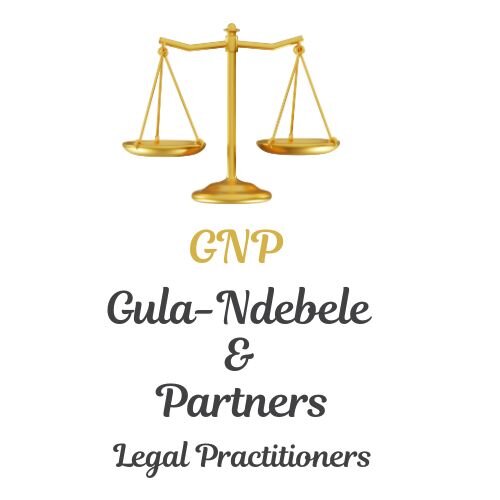Best Admiralty & Maritime Lawyers in Zimbabwe
Share your needs with us, get contacted by law firms.
Free. Takes 2 min.
Or refine your search by selecting a city:
List of the best lawyers in Zimbabwe
About Admiralty & Maritime Law in Zimbabwe
Admiralty and Maritime Law in Zimbabwe governs activities related to the sea, including shipping, navigation, marine commerce, seamen, and the transportation of goods by sea. This area of law is crucial for regulating the relationship between parties involved in maritime activities and ensuring their rights and responsibilities are upheld.
Why You May Need a Lawyer
You may need a lawyer specializing in Admiralty & Maritime Law in Zimbabwe if you are involved in disputes related to ship collisions, cargo damage, salvage operations, ship financing, insurance claims, or other maritime matters. A lawyer can provide you with legal guidance, representation in court proceedings, and help you navigate the complex web of maritime laws and regulations.
Local Laws Overview
In Zimbabwe, Admiralty and Maritime Law are primarily governed by the Merchant Shipping Act and other relevant statutes. Key aspects of local laws include regulations on ship registration, marine pollution prevention, crew employment contracts, liability for maritime incidents, and jurisdiction over maritime disputes. It's essential to understand these laws to ensure compliance and protect your interests in maritime transactions.
Frequently Asked Questions
1. What is the significance of ship registration in Zimbabwe?
Ship registration in Zimbabwe is essential to establish ownership, nationality, and legal status of a vessel. It determines the rights and obligations of the shipowner and allows the vessel to navigate international waters.
2. How are maritime pollution incidents regulated in Zimbabwe?
Maritime pollution incidents in Zimbabwe are governed by the Environmental Management Act and other regulations. Shipowners are required to comply with measures to prevent pollution and take responsibility for any environmental damage caused by their vessels.
3. What are the legal requirements for crew employment contracts in Zimbabwe?
Crew employment contracts in Zimbabwe must comply with the Labour Act and include terms related to wages, working conditions, repatriation, and other rights of seafarers. It's crucial to ensure these contracts meet legal standards to avoid disputes and protect the welfare of crew members.
4. How is liability determined in case of a maritime incident in Zimbabwe?
Liability for maritime incidents in Zimbabwe is determined based on various factors, including negligence, fault, and compliance with maritime regulations. Shipowners, operators, and other parties involved may be held accountable for damages caused by their vessels.
5. Can a dispute related to Admiralty & Maritime Law be resolved through alternative dispute resolution in Zimbabwe?
Yes, disputes related to Admiralty & Maritime Law can be resolved through alternative dispute resolution mechanisms such as mediation or arbitration in Zimbabwe. These methods offer a quicker and more cost-effective way to settle maritime disputes outside of formal court proceedings.
6. What role do maritime insurance companies play in Zimbabwe?
Maritime insurance companies in Zimbabwe provide coverage for risks associated with maritime activities, including vessel damage, cargo loss, liability claims, and other marine-related losses. It's important to have adequate insurance to protect against financial liabilities in the event of an unforeseen incident.
7. How can a lawyer help with ship financing transactions in Zimbabwe?
A lawyer specializing in Admiralty & Maritime Law can assist with ship financing transactions by reviewing loan agreements, security documents, and other legal paperwork to ensure compliance with banking regulations and protect the interests of the parties involved. They can also advise on financing options and help negotiate favorable terms.
8. What are the requirements for vessel safety inspections in Zimbabwe?
Vessel safety inspections in Zimbabwe are conducted by the Maritime Safety Authority to ensure compliance with international maritime regulations and local safety standards. Shipowners are required to maintain their vessels in a seaworthy condition and undergo regular inspections to prevent accidents and protect the marine environment.
9. How are disputes over salvage operations resolved in Zimbabwe?
Disputes over salvage operations in Zimbabwe are typically resolved through negotiations between the salvor and the shipowner or by arbitration proceedings. Salvage agreements should outline the terms of compensation and responsibilities of each party involved in the salvage operation to avoid conflicts and legal disputes.
10. What legal remedies are available in case of a breach of contract in maritime transactions in Zimbabwe?
In case of a breach of contract in maritime transactions in Zimbabwe, legal remedies such as damages, specific performance, or contract termination may be pursued through civil court proceedings. It's advisable to seek legal advice to understand your rights and options for resolving contractual disputes effectively.
Additional Resources
For further information and assistance with Admiralty & Maritime Law in Zimbabwe, you can contact the Maritime Safety Authority, Zimbabwe Maritime Lawyers Association, or seek guidance from legal professionals specializing in maritime law.
Next Steps
If you require legal assistance in Admiralty & Maritime Law in Zimbabwe, it's crucial to consult with a qualified lawyer who has experience in handling maritime matters. They can provide you with tailored advice, representation in legal proceedings, and help you navigate the complexities of maritime regulations to protect your interests and rights effectively.
Lawzana helps you find the best lawyers and law firms in Zimbabwe through a curated and pre-screened list of qualified legal professionals. Our platform offers rankings and detailed profiles of attorneys and law firms, allowing you to compare based on practice areas, including Admiralty & Maritime, experience, and client feedback.
Each profile includes a description of the firm's areas of practice, client reviews, team members and partners, year of establishment, spoken languages, office locations, contact information, social media presence, and any published articles or resources. Most firms on our platform speak English and are experienced in both local and international legal matters.
Get a quote from top-rated law firms in Zimbabwe — quickly, securely, and without unnecessary hassle.
Disclaimer:
The information provided on this page is for general informational purposes only and does not constitute legal advice. While we strive to ensure the accuracy and relevance of the content, legal information may change over time, and interpretations of the law can vary. You should always consult with a qualified legal professional for advice specific to your situation.
We disclaim all liability for actions taken or not taken based on the content of this page. If you believe any information is incorrect or outdated, please contact us, and we will review and update it where appropriate.
Browse admiralty & maritime law firms by city in Zimbabwe
Refine your search by selecting a city.
















